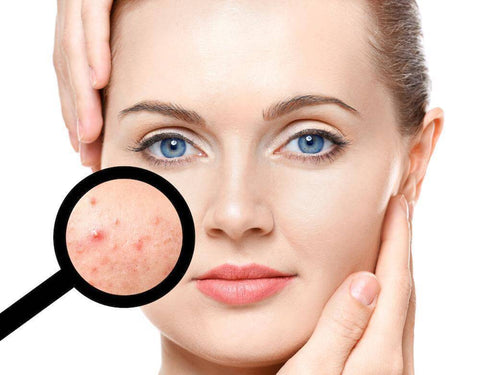Vitamin C is an essential nutrient that plays a crucial role in maintaining overall health. It is known for its ability to boost the immune system, improve skin health, and protect against oxidative damage.
However, there have been some concerns about the effects of vitamin C on acne. Some people believe that taking vitamin C-based supplements or using vitamin C-based skincare products can cause acne.
In this article, we will explore the relationship between vitamin C and acne and find out if vitamin C can cause acne.
About acne
Acne is a common skin condition that affects millions of people worldwide. It is characterized by the appearance of pimples, blackheads, and whiteheads on the face, neck, chest, and back. Acne occurs when the hair follicles become clogged with oil, dead skin cells, and bacteria, leading to inflammation and the formation of acne lesions.
Acne can range from mild to severe, with some cases leading to scarring and emotional distress. Fortunately, there are many treatment options available to help manage and improve acne.

Vitamin C
Vitamin C is a potent antioxidant that helps to protect the skin against free radical damage, which can cause premature aging and skin cancer. It also plays a vital role in collagen synthesis, which is essential for maintaining healthy hair, nails and skin.
Vitamin C is found in a wide variety of foods, including citrus fruits, berries, kiwi, broccoli, and peppers. It is also available in supplement form and is a common ingredient in many skincare products.
While vitamin C is generally considered safe, there have been some concerns about its potential to cause acne. Some people have reported that taking high doses of vitamin C supplements or using vitamin C-based skincare products can exacerbate their acne symptoms.
However, there is no scientific evidence to support these claims. In fact, several studies have suggested that vitamin C may actually be beneficial for acne-prone skin. One study found that vitamin C can help to reduce inflammation and prevent the formation of acne lesions. Another study found that vitamin C can improve the skin's barrier function, which helps to prevent acne-causing bacteria from penetrating the skin.
Debunking vitamin C acne myths
So, why do some people believe that vitamin C can cause acne? One possible explanation is that some vitamin C supplements and skincare products contain other ingredients that can clog pores and exacerbate acne symptoms. For example, some vitamin C supplements contain fillers and binders that can contribute to acne.
Similarly, some skincare products that contain vitamin C may also contain comedogenic ingredients that can clog pores and lead to breakouts. It is also possible that some people may be sensitive to vitamin C, although this is rare. Vitamin C is generally well-tolerated, and side effects are uncommon.
However, some people may experience mild digestive upset, such as nausea or diarrhea, when taking high doses of vitamin C. These side effects are usually temporary and resolve on their own.
If you are concerned about the effects of vitamin C on your acne, it is essential to talk to your dermatologist. A dermatologist is a professional who specializes in skin health and can provide personalized advice and treatment options based on your specific needs and concerns.
They can help you determine if vitamin C is right for your skin and recommend the best dosage and form of vitamin C for your needs. They can also advise you on the best skincare products to use and help you develop a skincare routine that is tailored to your skin type and concerns.

Conclusion
There is no scientific evidence to suggest that vitamin C can cause acne. In fact, several studies have suggested that vitamin C may actually be beneficial for acne-prone skin. However, it is possible that some people may be sensitive to vitamin C or other ingredients found in supplements and skincare products.
If you have worries regarding the impact of vitamin C on your acne, it is recommended to consult with a dermatologist who can assist you in deciding the most appropriate plan of action for your skin. With the right care and attention, you can achieve healthy, clear, and radiant skin.


